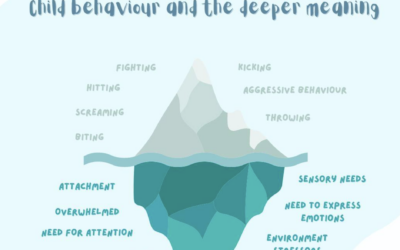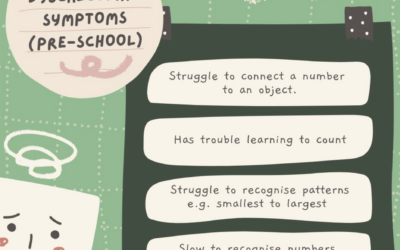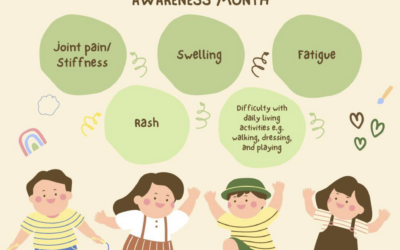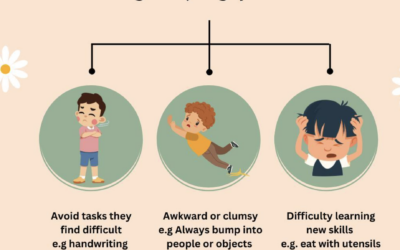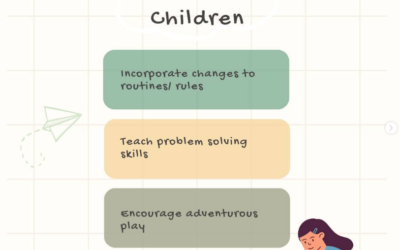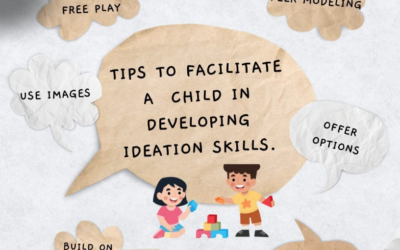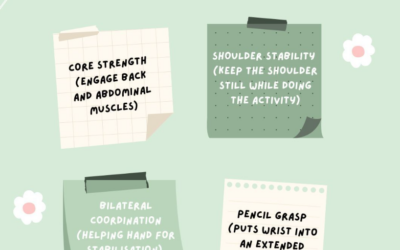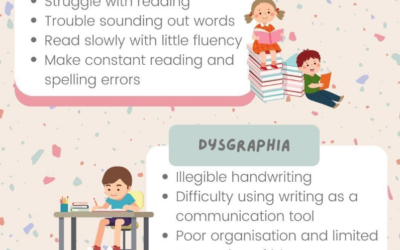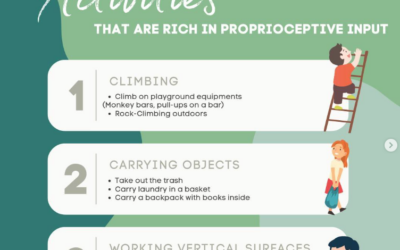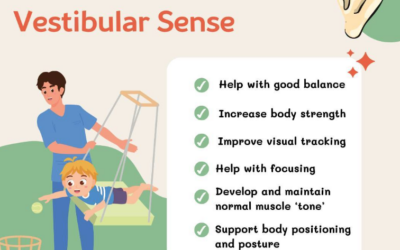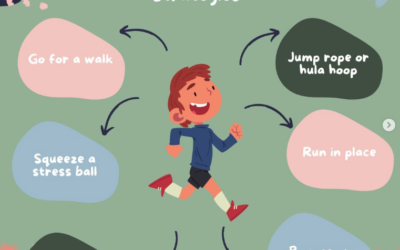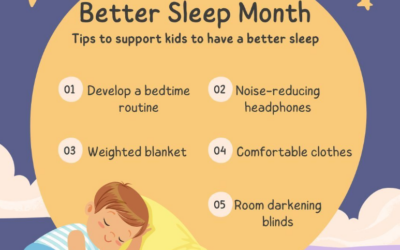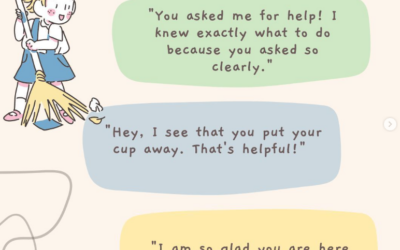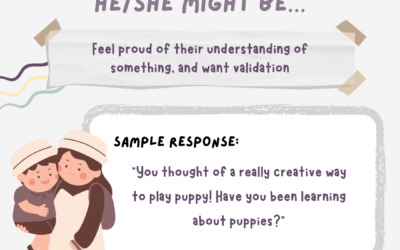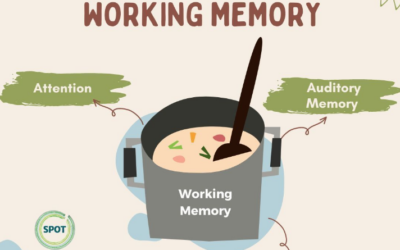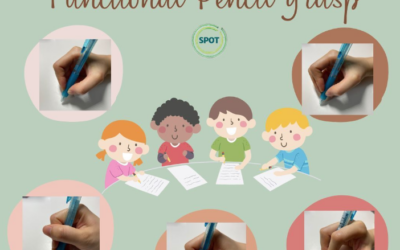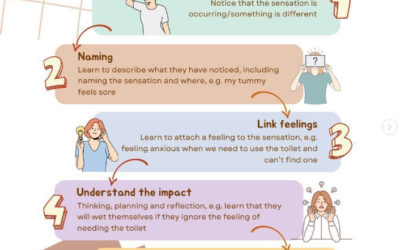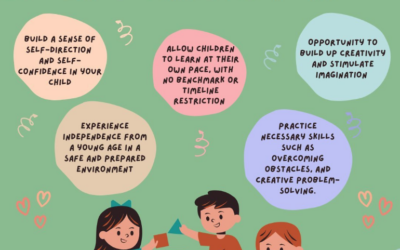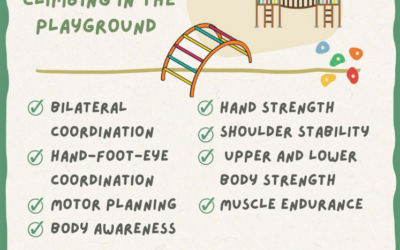Different types of child behaviour communicate different messages, learning to understand the child’s underlying needs and feelings takes time and practice. It is vital to support the child to explore their feelings, emotions and provide opportunities to explore these...
Occupational Therapy
Dyscalculia symptoms (pre-school)
Dyscalculia is a learning disorder that affects a person’s ability to do math. Here are some common symptoms of Dyscalculia across different age groups.
Juvenile arthritis
Juvenile arthritis (JA) is a term used to refer to chronic disorders that involve inflammation of joints (arthritis) in children. The most common type of childhood arthritis is juvenile idiopathic arthritis (JIA), also known as juvenile rheumatoid arthritis. Some...
Signs of Dyspraxia
Here are some common signs of Dyspraxia in Children:
Flexible Thinking
Flexibility in thinking is vital in child development as it encourages creativity and helps to adapt to new situations. Here are some tips to promote flexible thinking:
Developing ideation skills
When we carry out a motor task, Ideation is the first step, in which we have to understand the task and then generate an idea of what we want to do. If a child finds ideation challenging, he could experience difficulties in the following steps, including formulating a...
Benefits of Working on a Vertical Surface
Traditionally, children do a lot of activities on a table. For example, drawing, painting, playing, writing and many other activities. However, did you know children can also do the above activities on a vertical surface (e.g. board, door, wall etc.)? There are many...
Common features of Dyslexia and Dysgraphia
You might already know that Dyslexia is a learning difficulty that affects one’s reading skills. While another learning difficulty, dysgraphia, share some similarities, in which both are neurological language-based disorders and present with challenges in spelling....
Activities that are rich in proprioceptive input
The proprioceptive system is located in our muscles and joints. It provides us a sense of body awareness and recognizes/manages pressure and force. Proprioceptive input can help regulate reactions to sensory inputs, which is another essential regulatory function of...
Importance of Vestibular Sense
The Vestibular Sense is crucial for a child’s development. It helps them to work and play. A responsive vestibular system allows a child to feel secure and confident with their body so they can move and attend to learning. It also helps kids to ‘keep tabs’ on the...
Coping Strategies
Coping is not something we are born knowing how to do; it’s something we learn how to do with practice. It's never too early or too late to begin learning healthy coping mechanisms, and demonstrating these to your children will make them more resilient. Here are a...
Better Sleep
May is known as the better sleep month, which aims to encourage people to develop better sleep habits. We all know sleep can bring us many benefits and is crucial in children’s development. However, some children may find it tricky to fall asleep, easily wake up at...
Tips to help your child feel seen
Every child deserves to feel acknowledged and valued, as this can help them develop a sense of belonging and security. Here are some ways in which we can communicate to our children that we are aware of their emotions and experiences, and that we are here to support...
Why is my child showing bossy behaviour?
Is your child showing bossy behaviour? It's not uncommon for kids to try to exert control over their peers, especially as they learn to navigate social relationships. Check out our graphic for underlying reasons of their bossy behaviour and tips on how to respond to...
What is dysgraphia?
Did you know that dysgraphia is a learning disorder that affects a child's ability to write? Here are some tips and tools that are designed to assist children with dysgraphia in improving their writing skills and building confidence:
Key ingredients in Working Memory
Working memory has a critical role in everyday activities, such as learning, carrying out instructions, problem-solving, reading comprehension, doing maths sums in your head… and a lot more! If we consider working memory as the soup, then the key ingredients would be...
What is a functional pencil grasp?
What is a functional pencil grasp? A functional pencil grasp means the grasp that allows us to write efficiently and effectively, and it does not necessarily have to be a tripod grasp. Here are some examples of functional pencil grasps. However, if the type of grasp...
5 stages of Interoceptive Awareness
From feeling their breath to noticing their hunger and fullness cues, cultivating interoceptive awareness can help children develop a strong mind-body connection and make healthy choices. These are the 5 stages of interoceptive awareness and the sensations your child...
Benefits of child-directed play
Child directed play (CDP) is a special form of one-to-one play between you and your child in which your child directs and leads. Here are some benefits of Child-Directed Play. We recommend this practise daily with caregivers and helpers to favour their connection with...
Benefits of climbing in the playground
Climbing in the playground can bring a wide range of benefits to children's motor development. Let's visit our community playgrounds more frequently! If your child is reluctant to try climbing facilities in the playground or appears clumsy / lacks strength, speak to a...

